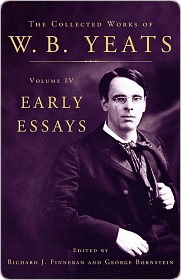

Most ebook files are in PDF format, so you can easily read them using various software such as Foxit Reader or directly on the Google Chrome browser.
Some ebook files are released by publishers in other formats such as .awz, .mobi, .epub, .fb2, etc. You may need to install specific software to read these formats on mobile/PC, such as Calibre.
Please read the tutorial at this link: https://ebookbell.com/faq
We offer FREE conversion to the popular formats you request; however, this may take some time. Therefore, right after payment, please email us, and we will try to provide the service as quickly as possible.
For some exceptional file formats or broken links (if any), please refrain from opening any disputes. Instead, email us first, and we will try to assist within a maximum of 6 hours.
EbookBell Team

5.0
18 reviewsThe Collected Works of W. B. Yeats, Volume IV: Early Essays is part of a fourteen-volume series under the general editorship of eminent Yeats scholars George Bornstein and George Mills Harper. These volumes include virtually all of the Nobel laureate's published work, in authoritative texts with extensive explanatory notes.
Early Essays, edited by the internationally esteemed Yeats scholars George Bornstein and the late Richard J. Finneran, includes the contents of the two most important collections of Yeats's critical prose, Ideas of Good and Evil (1903) and The Cutting of an Agate (1912, 1919). Among the seminal essays are considerations of Blake, Shakespeare, Shelley, Spenser, and Synge, as well as an extended discussion of the Japanese Noh theatre. The first scholarly edition of these materials, Early Essays offers a corrected text and detailed annotation of all allusions. Several appendices gather materials from early printings which were later excluded, as well as illuminating black-and-white illustrations.
Early Essays is an essential sourcebook for understanding Yeats's career as both writer and literary critic, and for the development of modern poetry and criticism. Here, Yeats works out many of his key ideas on poetry, politics, and the theater. He gives interpretations of writers critical to his development and presents a compelling vision of Ireland and the modern world during the last decade of the nineteenth century and first two decades of the twentieth. As T. S. Eliot remarked, Yeats "was one of those few whose history is the history of their own time, who are a part of the consciousness of an age which cannot be understood without them." This volume displays a crucial part of that history.